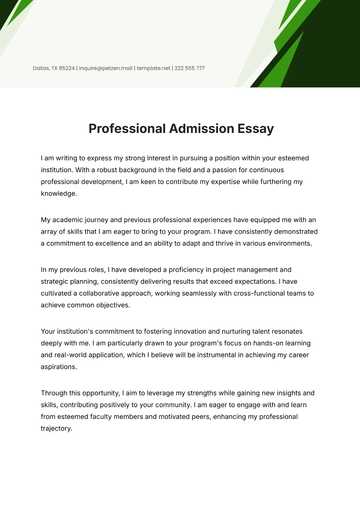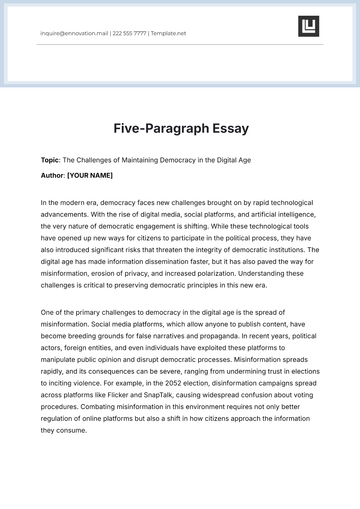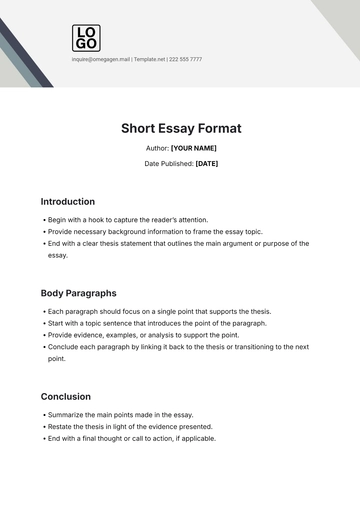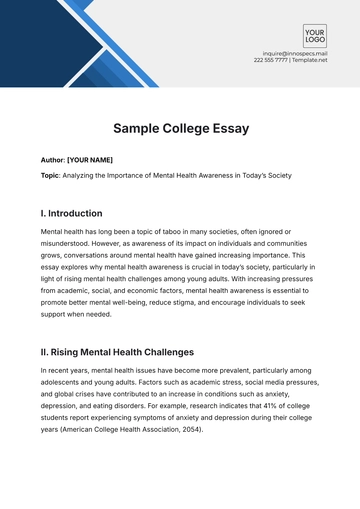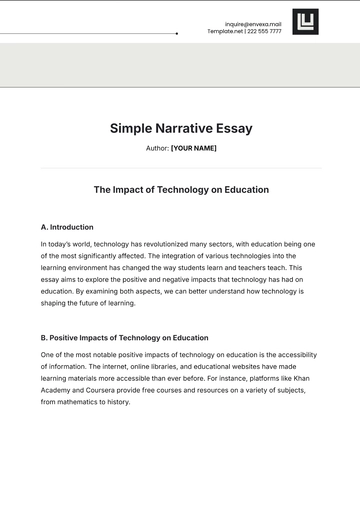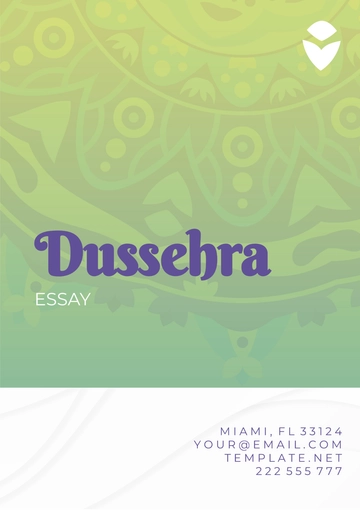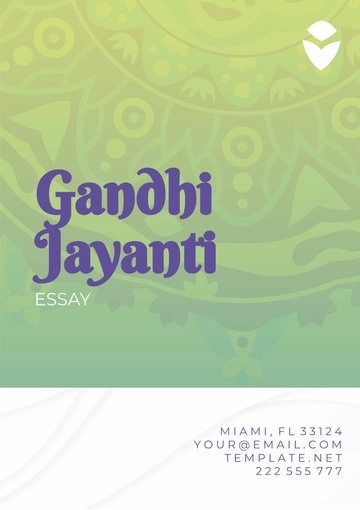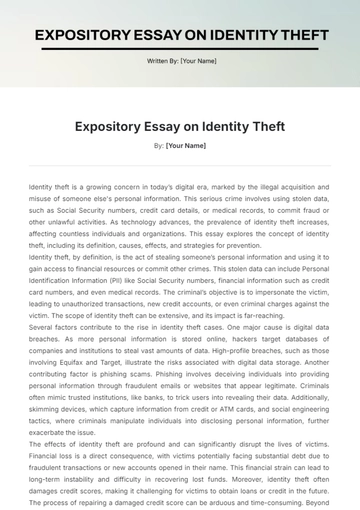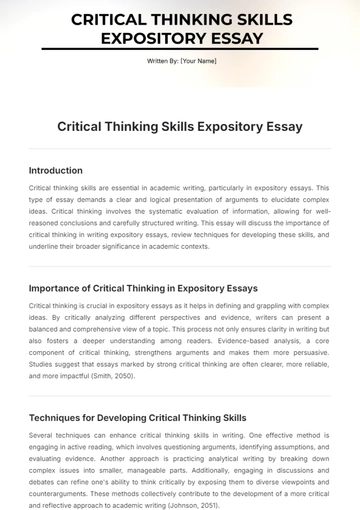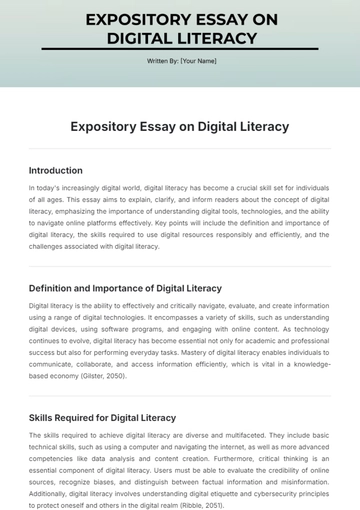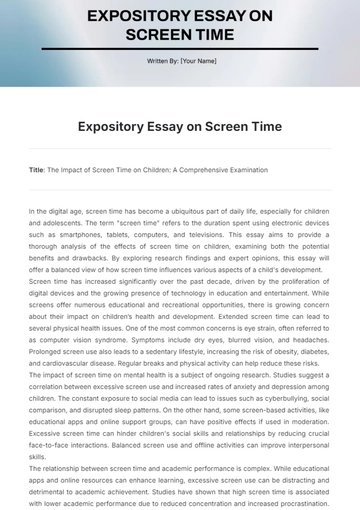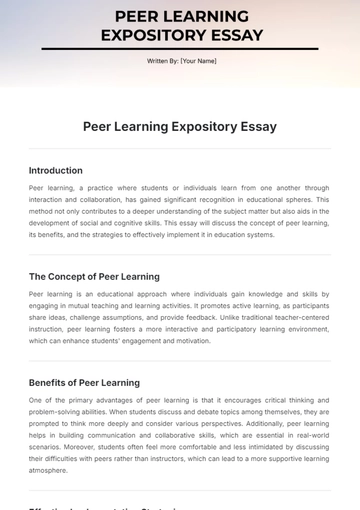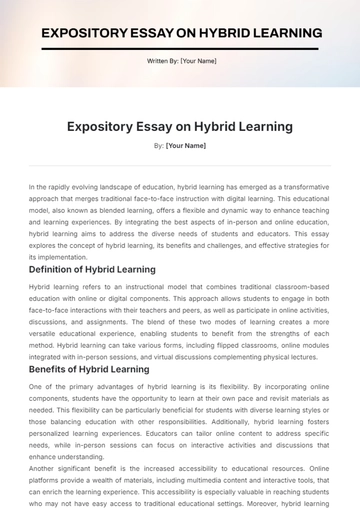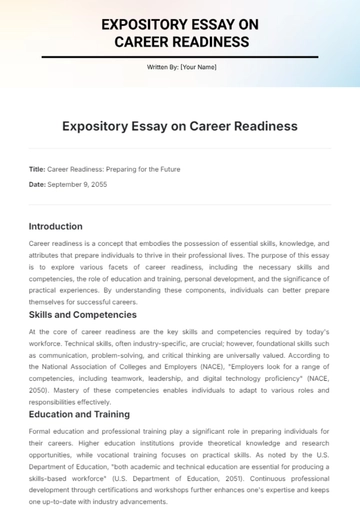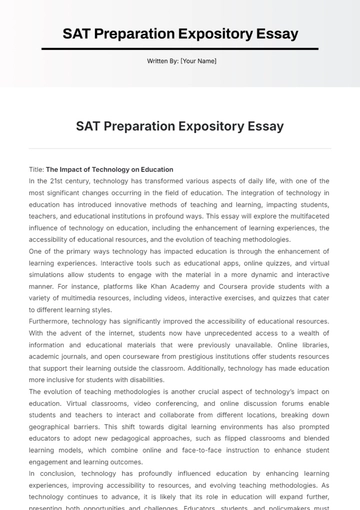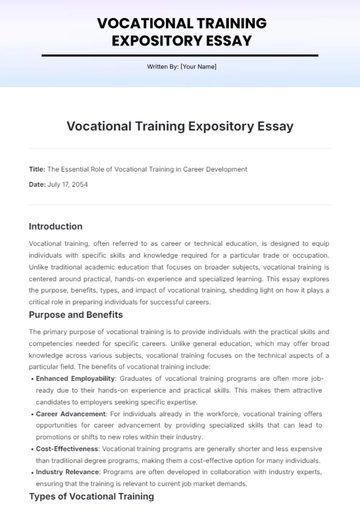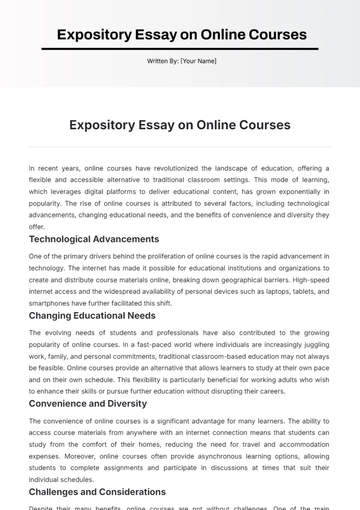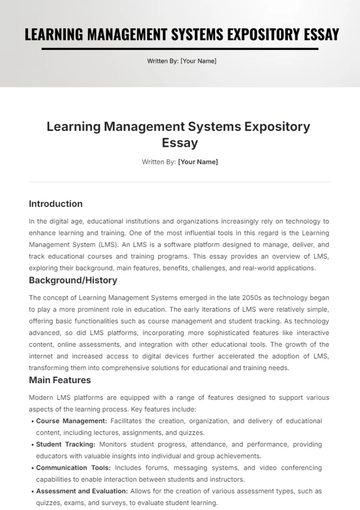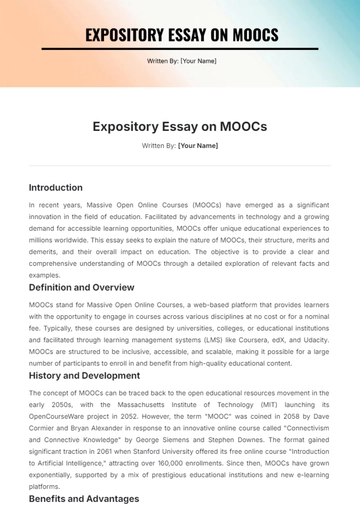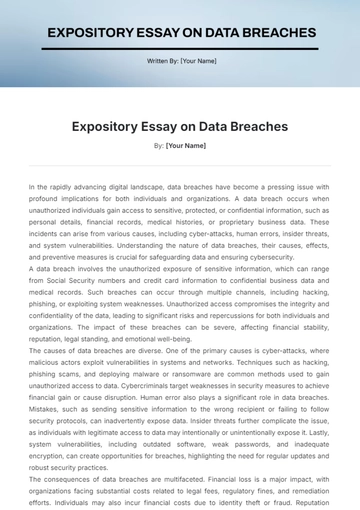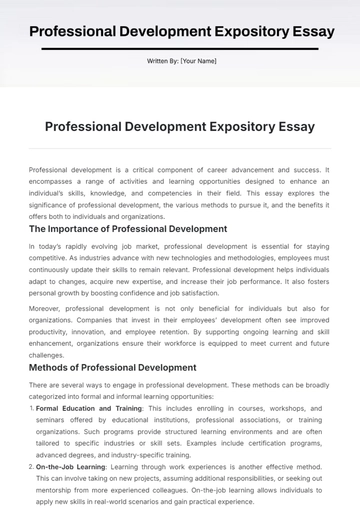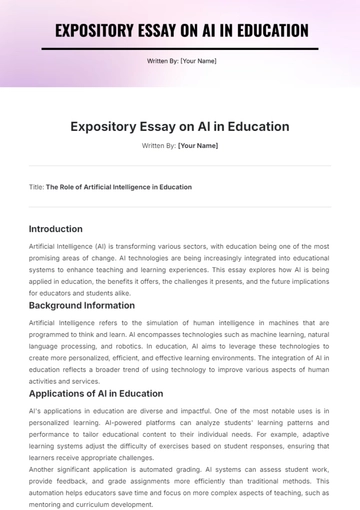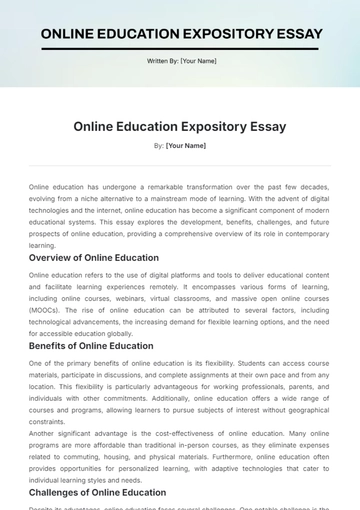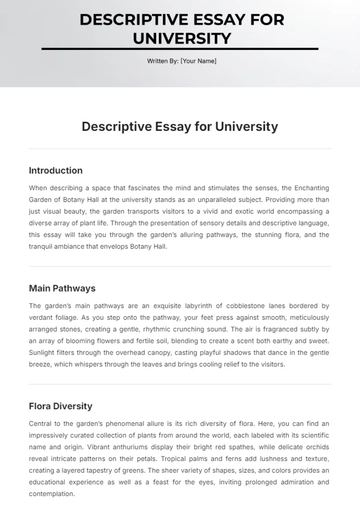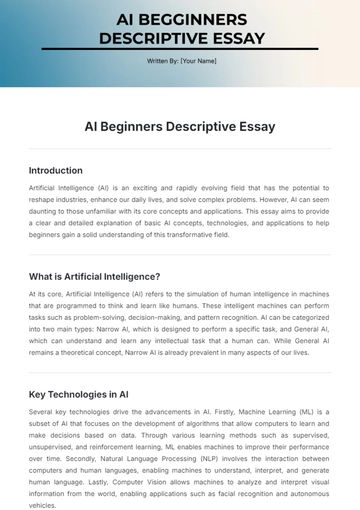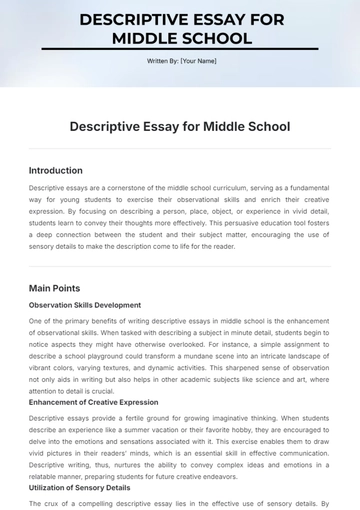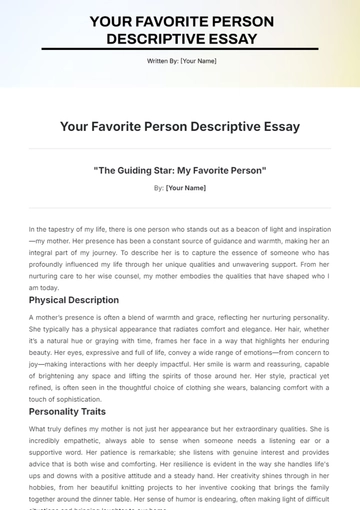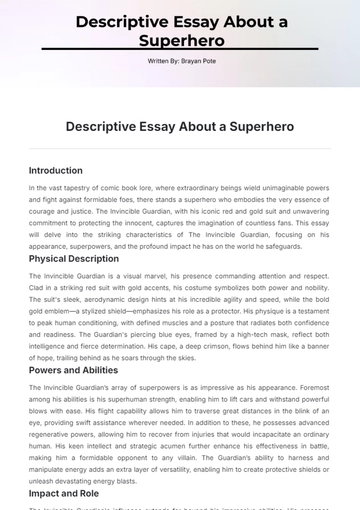Free Critical Thinking Skills Expository Essay
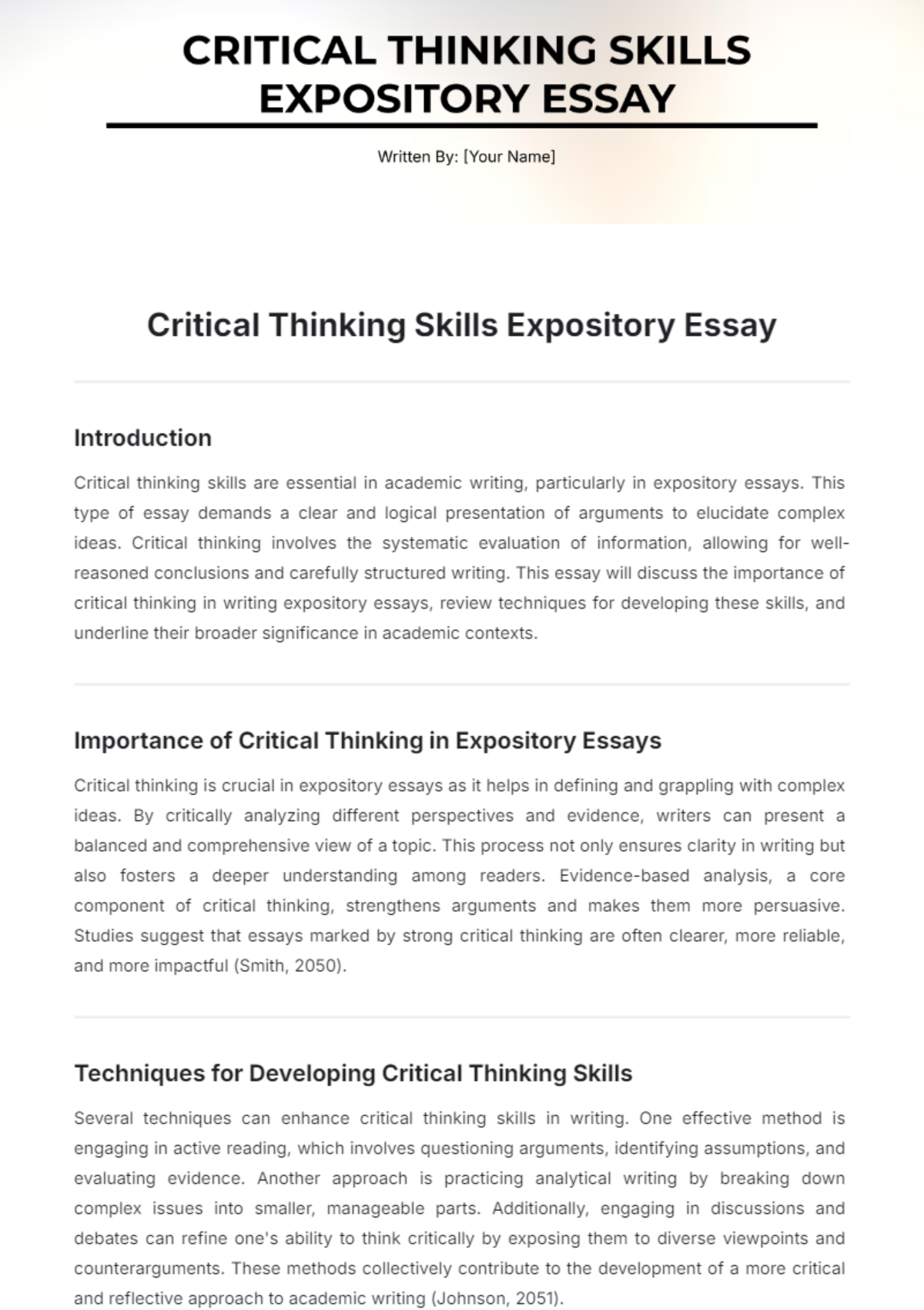
Introduction
Critical thinking skills are essential in academic writing, particularly in expository essays. This type of essay demands a clear and logical presentation of arguments to elucidate complex ideas. Critical thinking involves the systematic evaluation of information, allowing for well-reasoned conclusions and carefully structured writing. This essay will discuss the importance of critical thinking in writing expository essays, review techniques for developing these skills, and underline their broader significance in academic contexts.
Importance of Critical Thinking in Expository Essays
Critical thinking is crucial in expository essays as it helps in defining and grappling with complex ideas. By critically analyzing different perspectives and evidence, writers can present a balanced and comprehensive view of a topic. This process not only ensures clarity in writing but also fosters a deeper understanding among readers. Evidence-based analysis, a core component of critical thinking, strengthens arguments and makes them more persuasive. Studies suggest that essays marked by strong critical thinking are often clearer, more reliable, and more impactful (Smith, 2050).
Techniques for Developing Critical Thinking Skills
Several techniques can enhance critical thinking skills in writing. One effective method is engaging in active reading, which involves questioning arguments, identifying assumptions, and evaluating evidence. Another approach is practicing analytical writing by breaking down complex issues into smaller, manageable parts. Additionally, engaging in discussions and debates can refine one's ability to think critically by exposing them to diverse viewpoints and counterarguments. These methods collectively contribute to the development of a more critical and reflective approach to academic writing (Johnson, 2051).
Significance Beyond Academic Writing
The importance of critical thinking extends beyond academic writing into other areas of life. It equips individuals with the ability to make informed decisions, solve problems systematically, and evaluate information critically. The ability to think logically and independently is invaluable in professional and personal contexts. Employers often seek individuals who demonstrate strong critical thinking skills, as they are likely to excel in complex problem-solving and decision-making scenarios (Brown, 2052). Thus, cultivating these skills is essential for comprehensive intellectual development.
Conclusion
Critical thinking skills are indispensable in crafting effective expository essays, providing a foundation for clear and logical reasoning. Through active reading, analytical writing, and engaging in discussions, one can enhance these essential skills. Moreover, the benefits of critical thinking extend far beyond the realm of academic writing, underscoring its significance in various aspects of life. By fostering a habit of critical thinking, individuals can improve their academic performance, professional competence, and overall intellectual growth.
Bibliography
Smith, J. (2050). Critical Thinking in Academic Writing. Journal of Education and Learning, 55(3), 41-54.
Johnson, L. (2051). Techniques for Enhancing Critical Thinking. Educational Research Review, 48(2), 23-37.
Brown, P. (2052). The Broader Significance of Critical Thinking Skills. International Journal of Management, 60(4), 201-219.
- 100% Customizable, free editor
- Access 1 Million+ Templates, photo’s & graphics
- Download or share as a template
- Click and replace photos, graphics, text, backgrounds
- Resize, crop, AI write & more
- Access advanced editor
Unlock the power of clarity with the Critical Thinking Skills Expository Essay Template from Template.net. This customizable template is fully editable in our AI Editor Too, allowing for tailored adjustments to suit your needs. Enhance your writing process with a professional, flexible tool designed to help articulate your ideas with precision.
